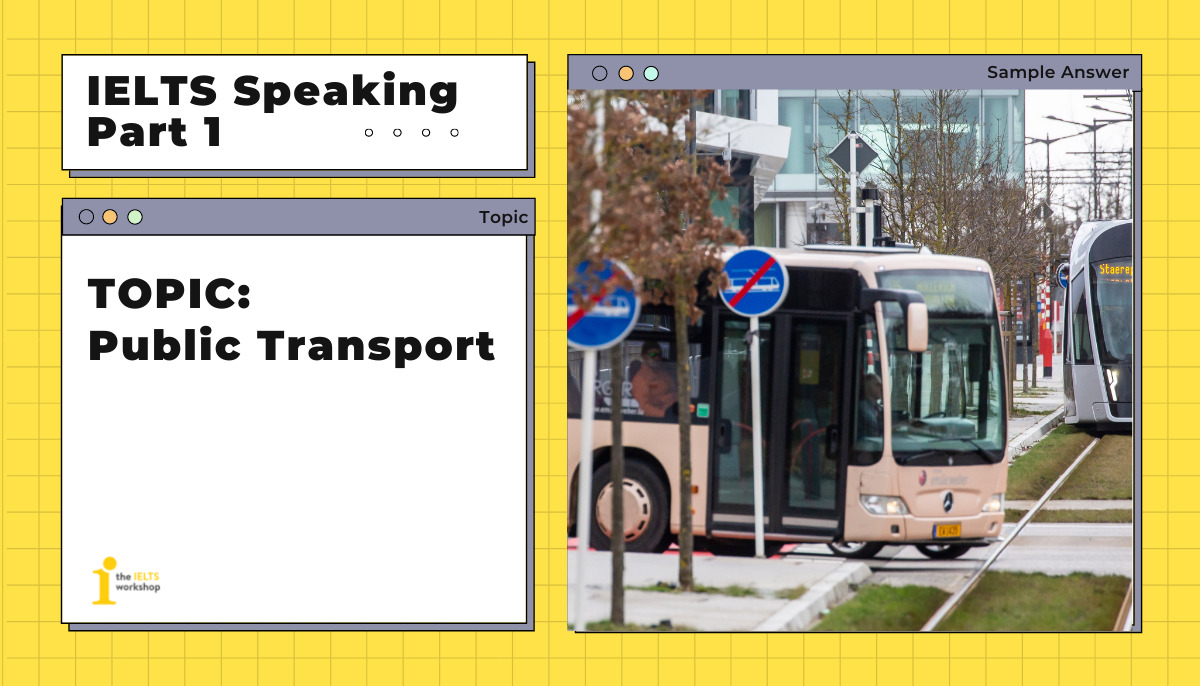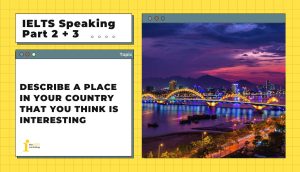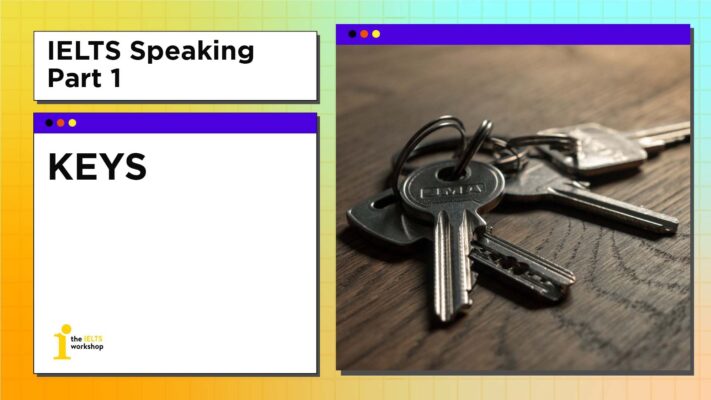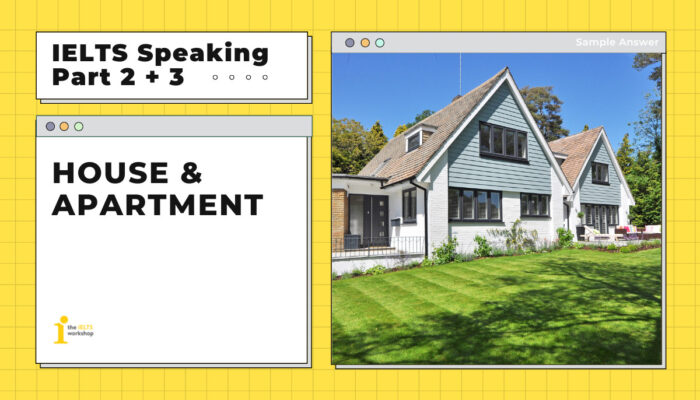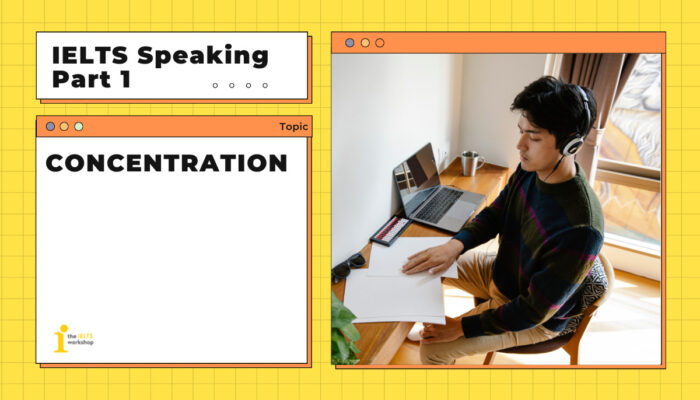Tại chuyên mục giải đề IELTS Speaking lần này, thầy Công Minh (8.5 IELTS), thầy Trung Đức của The IELTS Workshop HN và thầy Hoàng Bảo của The IELTS Workshop TP. HCM sẽ hướng dẫn cách trả lời câu hỏi của một chủ đề quen thuộc: PUBLIC TRANSPORT IELTS Speaking Part 1. Dưới đây là bài trả lời mẫu cho Topic. Cùng tham khảo sample, từ vựng và một vài cách diễn đạt ghi điểm nhé.
Câu hỏi cho chủ đề PUBLIC TRANSPORT IELTS Speaking Part 1
1. Do you often use public transport?
2. Should people use more public transport? Why?
3. Do you think people in your country prefer public transport?
4. What kind of public transportation do you usually take?
5. Do most people prefer public transportation in your country?
6. Did you take public transportation when you were a kid?
7. Will there be more people taking public transportation in the future?
Câu trả lời mẫu (Sample Answer)
1. Do you often use public transport?
(Bạn có sử dụng phương tiện giao thông công cộng không)
Sample 1: You know, due to the fact that mass transit in Vietnam is pretty subpar in terms of quality, I tend to avoid using it. I have only travelled by bus around 5 times so far in my life because it’s common for them to be around 10 minutes late, sometimes even more, so in my opinion, they are pretty unreliable. Hopefully, the government would raise the quality standards of public transport; otherwise, I can’t see myself getting on a bus anytime soon.
- mass transit (n) = public transport
- subpar (adj) = below-average
- unreliable = not able to be trusted
- I can’t see myself (doing something) = I won’t (do something)
Sample 2: To be honest, given the choice, I would choose to travel on my private transport, because it is much more convenient for me to do so. Of course, I’m very aware of the environmental impacts of not using public transports, but the public transport system here can sometimes be unreliable and not up to standards.
- Unreliable (adj): không đáng tin cậy
- Up to standards (adj.): đạt tiêu chuẩn
2. Should people use more public transport? Why?
(Mọi người có nên sử dụng phương tiện công cộng nhiều hơn không? Tại sao?)
In my opinion, it’s crucial that citizens shift from using private vehicles to public transportation primarily because of the ever-increasing population rate. Apparently, the amount of exhaust emitted from cars and motorbikes contributes significantly to global warming and air pollution; therefore, encouraging the use of mass transit can help cut the level of greenhouse gases, reducing potential health problems.
3. Do you think people in your country prefer public transport?
(Bạn có nghĩ người dân ở quốc gia của bạn thích sử dụng phương tiện công cộng?)
I think it depends on the reason. There are some who are in favor of public transit services and they commute by buses on a regular basis because the bus route is accessible and suitable for their daily travel needs. However, there are those who strongly oppose using mass transit due to a number of reasons, from its poor standards to security to inconvenience.
- bus route (n): tuyến xe buýt
4. What kind of public transportation do you usually take?
(Bạn thường đi loại phương tiện công cộng nào?)
To be completely honest with you, I’m not very much into public transportation. So as you may probably guess, rarely do I use them to commute. But every once in a while, I do take a bus to places far from my home as this would save me from the hassle of driving while I could have a quick nap.
- every once in a while: thi thoảng
- save me from the hassle of: giúp tôi thoát khỏi sự phiền hà (khi phải làm gì đó)
5. Do most people prefer public transportation in your country?
(Có phải hầu hết mọi người thích phương tiện giao thông công cộng ở đất nước của bạn không?)
Sample 1: Well, I’d say no. People in Vietnam tend to gravitate towards their private vehicles more. This is simply because the public transport system in Vietnam is still subpar. And by this I mean they aren’t equipped with free wifi and the comfy seats. This is compounded by the fact that traveling by modes of public transportation can be much slower compared to private ones. I mean traveling by private vehicles enable you to go whenever you want and stop wherever you’d like, to boot. So yeah, I’d say things like buses and trains are not widely-favored by a lot of Vietnamese people.
- tend to gravitate towards: nghiêng về
- subpar: chưa đủ tốt
- This is compounded by the fact that: thêm vào đó
Sample 2: It’s hard to say but I think for the most part, public transports are not as popular as private vehicles. Personal transport is more flexible and much quicker than public transport, because you can essentially go anywhere you want without having to wait for a bus. Plus, my city is not exactly walkable, so people would often end up going around on motorbikes or cars.
- For the most part: phần lớn
- Flexible (adj): linh hoạt
- Walkable (adj): (thành phố) dành cho người đi bộ
- End up (v.): (kết quả) rơi vào tình trạng nào đó
6. Did you take public transportation when you were a kid?
(Bạn có đi phương tiện công cộng khi còn nhỏ không?)
Sample 1: I would say no. Back in the day when I was a small child living in Ninh Binh, which was kinda underdeveloped, there used to be no mass transit system there. So, all I knew about the so-called public transport was from the media. I even dreamed of having a chance to travel by bus or train back then, but it was not until I went to my university in Hanoi did I first have my experience with bus and stuff.
- mass transit system: hệ thống giao thông công cộng
- so-called: cái được gọi là
Sample 2: Not at all. There wasn’t any reason for me to use public transport when I was younger, because I lived in the city center, so everything was close enough so there wasn’t really any incentive for me to go around on public transport.
- Incentive (n.): sự thúc đẩy
7. Will there be more people taking public transportation in the future?
(Liệu sẽ có nhiều người sử dụng phương tiện công cộng hơn trong tương lai?)
Sample 1: Well, based on the current situation of public transport use, it’s hard to predict whether it would be used more in the future. But to be honest, I hope mass transit would be in use more. You know, global warming is on the rise and the Earth is becoming more and more uninhabitable, so I think public transportation is the only way to combat global warming and environmental pollution.
- on the rise: trên đà tăng
- uninhabitable: không thể sống được
Sample 2: It’s hard to say. I’m well aware of the push for people to use public transport in recent years, given the increased concerns over the environmental impact of fossil fuels, so I’m all for people traveling on public transport. But I do think that the current system needs a revamp, so that people would be more inclined to switch to mass transit.
- All for: ủng hộ
- Revamp (n.): nâng cấp
- Inclined (adj.): thiên về
- Mass transit (n.): phương tiện công cộng
Trên đây là sample cho Topic: PUBLIC TRANSPORT IELTS Speaking Part 1. Ngoài ra, các bạn có thể tham khảo Kho bài mẫu Speaking Part 1 của The IELTS Workshop cũng như làm bài test trình độ IELTS tại đây, từ đó đề ra cho mình lộ trình ôn luyện IELTS chuẩn xác nhất nhé!
Ngoài ra, bạn hãy tham khảo phương pháp xây dựng câu trả lời ngắn gọn cho bài thi IELTS Speaking Part 1 tại khóa học Pre-Senior của The IELTS Workshop nhé.


